ON1BES Labo 2019 Spectrum64 and RTL Panorama |
 Back to Home-page |
Voor NL versie klik hier
In this Lab 2 programs were discussed for use with the cheap RTL-SDR sticks.
With these programs you can show a much wider spectrum on your PC screen, than what is normally possible with our SDR stick.
The normal use of an SDR stick only shows a scope of maximum 2MHz on an LCD screen, so that it is not possible to see wider signals at once.
There are NO restrictions on the width of the Spectrum, so you can safely view a Spectrum of e.g. 100MHz to 1GHz or more!
Examples of broader signals are: DAB radio, Amateur DVB-T, Communication and other broadband signals.
Moreover, with these programs and some auxiliary material it is possible to e.g. View FILTERS, measure antennas, and / or adjust.
With 'RTL Panorama' it looks a bit like VNWA measurements, and the results are automatically poured into an Excel file for further use.
The programs are designed in the Linux environment, but also ported to a Windows 10 (64bit) environment.
This program works in 'almost real-time' to show a wider Spectrum than what is normally possible with an SDR-RTL stick.
Changes you make to the frequency range or adaptation of a filter or antenna are immediately visible in the scan.
Extensive info on this website :
-- New RTL-SDR Spectrum Analyzer Software --
Some video's on YouTube :
-- Poor Mans Spectrum Analyzer with an RTL-SDR and Noise Source --
With this program, VNA-like measurements are possible from a wider Frequency spectrum than is normally possible with an RTL-SDR stick.
Every scan or measurement sends its data to an Excel file, which you can further edit or analyze.
Very broadband signals are also seen in the scan that would otherwise not normally be seen with an RTL-SDR stick.
With the help of the Noise Source and a Directional Coupler you can measure an existing, suspicious or unknown antenna (VHF-UHF). You can see directly in the frequency spectrum where the antenna is sensitive.
With the help of the Excel data you can create a VSWR or PWR table from the antenna.
Extensive info on this website :
-- Measuring filter characteristics and antenna VSWR with an RTL-SDR and noise source --
-- RTL-SDR Spectrum Analyzer Software Now with Improved UI --
'73 ON1BES
More SDR on : www.on1bes.be
Programma Spectrum64 and RTL Panorama
In this Lab 2 programs were discussed for use with the cheap RTL-SDR sticks.
With these programs you can show a much wider spectrum on your PC screen, than what is normally possible with our SDR stick.
The normal use of an SDR stick only shows a scope of maximum 2MHz on an LCD screen, so that it is not possible to see wider signals at once.
There are NO restrictions on the width of the Spectrum, so you can safely view a Spectrum of e.g. 100MHz to 1GHz or more!
Examples of broader signals are: DAB radio, Amateur DVB-T, Communication and other broadband signals.
Moreover, with these programs and some auxiliary material it is possible to e.g. View FILTERS, measure antennas, and / or adjust.
With 'RTL Panorama' it looks a bit like VNWA measurements, and the results are automatically poured into an Excel file for further use.
The programs are designed in the Linux environment, but also ported to a Windows 10 (64bit) environment.
SPECTRUM 64
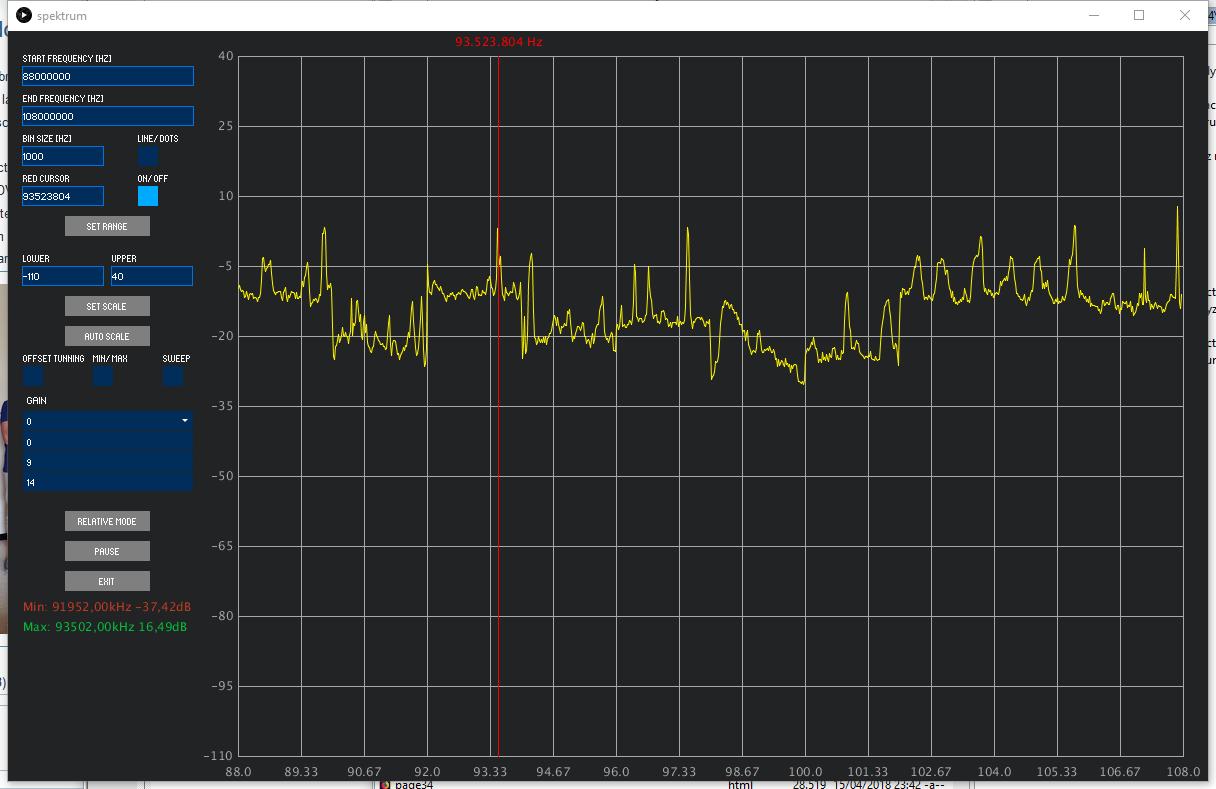 |
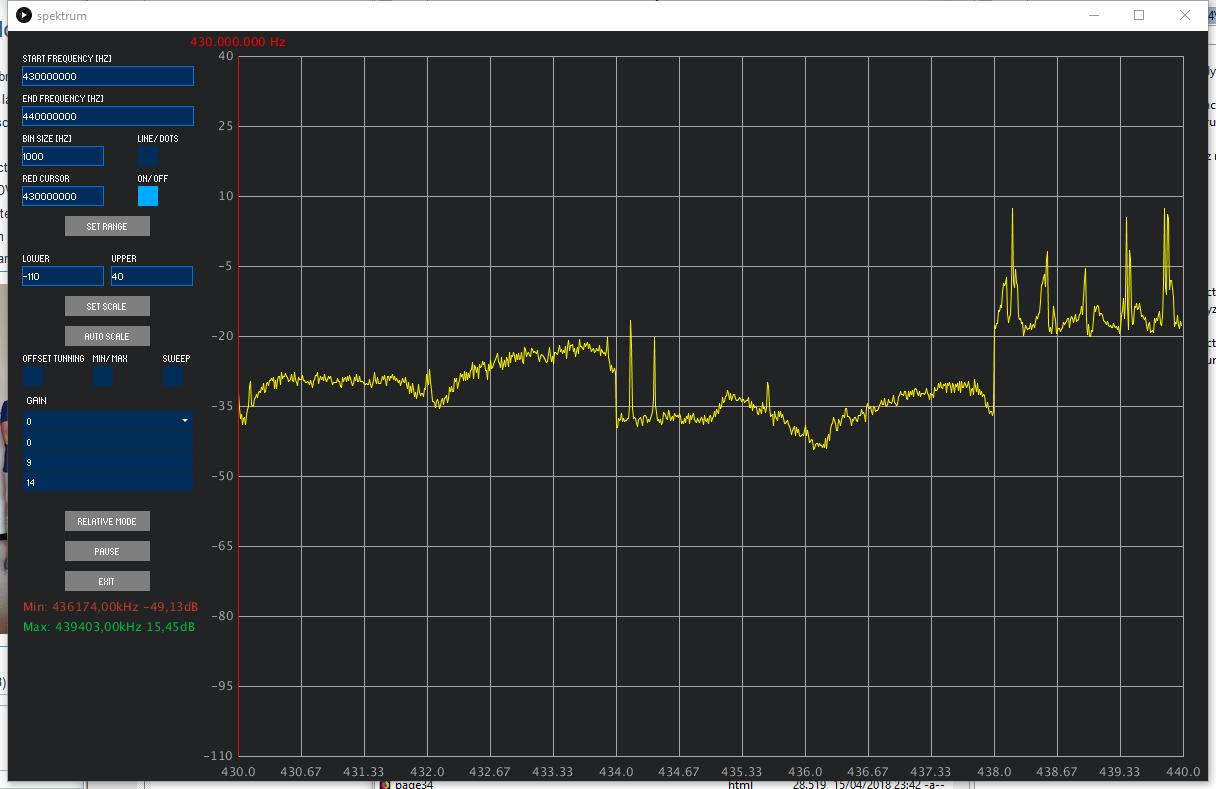 |
| Spectrum of the FM Band | Spectrum of the 70cm Band | 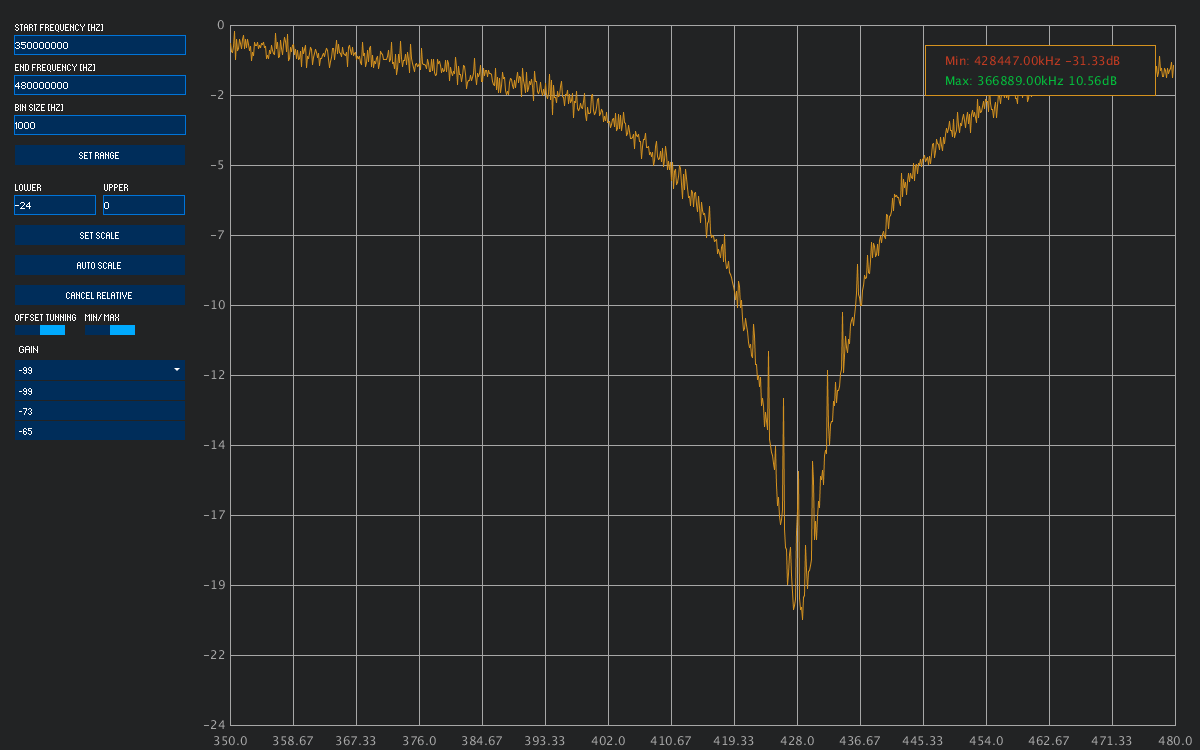 |
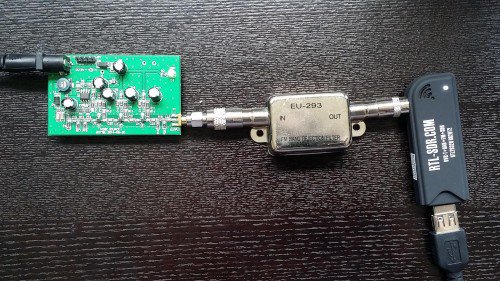 |
A filter for 428MHz | Setup needed for Filter messure |
Changes you make to the frequency range or adaptation of a filter or antenna are immediately visible in the scan.
Extensive info on this website :
-- New RTL-SDR Spectrum Analyzer Software --
Some video's on YouTube :
-- Poor Mans Spectrum Analyzer with an RTL-SDR and Noise Source --
RTL PANORAMA
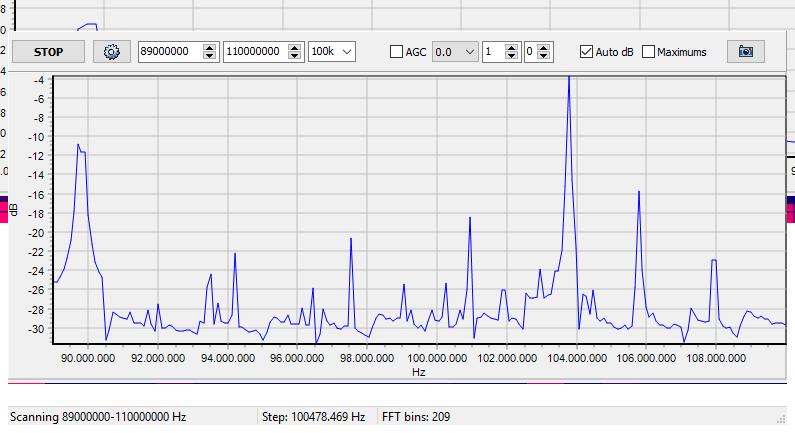 |
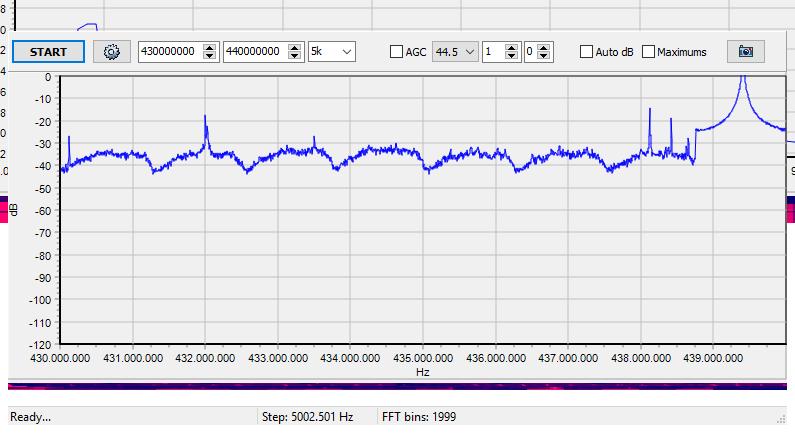 |
| Spectrum of the FM band | Spectrum of the 70cm Band |
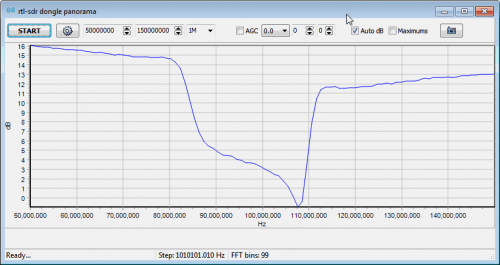 |
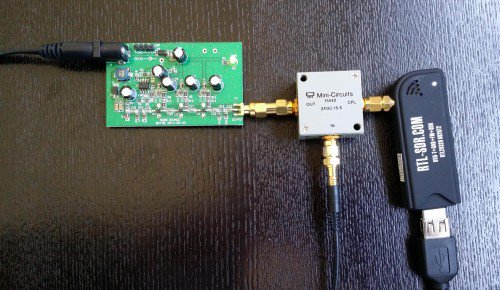 |
| A FM Bandpass stop filter | Setup needed for antenna messure |
With the help of the Noise Source and a Directional Coupler you can measure an existing, suspicious or unknown antenna (VHF-UHF). You can see directly in the frequency spectrum where the antenna is sensitive.
With the help of the Excel data you can create a VSWR or PWR table from the antenna.
Extensive info on this website :
-- Measuring filter characteristics and antenna VSWR with an RTL-SDR and noise source --
-- RTL-SDR Spectrum Analyzer Software Now with Improved UI --
'73 ON1BES
More SDR on : www.on1bes.be